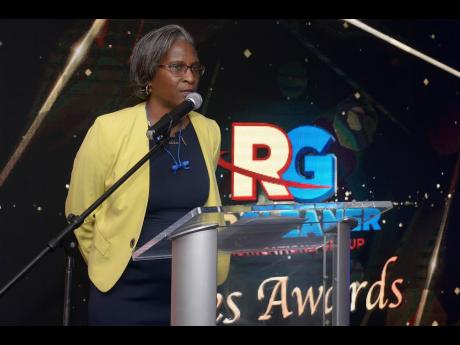Internet radio might become ‘new normal’ - Industry stakeholders say more opportunities will revive platforms
RADIO HAS been a staple of international and local media for decades, reinventing itself with each new wave of technological advancement. For Gavin Whylie, co-founder of JamRockOne, radio has been a mainstay in our lives, “with most of us not knowing a world without its advancement”.
He added: “It ranges from its applications in the First World War to its more recent developments in transmission via the Internet – though many may argue that Internet radio has not necessarily been true to its definition (because of its wired component), it has become the new normal for radio, with traditional stations accepting and broadcasting their messages via this medium.”
JamRockOne was one of several Internet radio stations created five years ago, and for the reason that listening to regular radio meant having to be patient with the broadcast of commercials.
“One of the team members described it as annoying to be hearing commercials played every five minutes,” he said. “He wanted to create a platform that was, for the most part, commercial-free, where persons could hold a vibe for over 30 minutes or more.”
He noted that with the world focused on controlling the spread of COVID-19 and persons practising social distancing, it is likely that Internet radio will see a surge in the number of listeners.
“Over one million Jamaicans use smart devices; under the current conditions of the pandemic, persons who may have listened to traditional radio in their vehicles are spending less time on the road and more time at home. These listeners are diverted towards Internet radio due to its availability and ease of access to news and entertainment,” Whylie expressed.
“Radio is entering a new frontier,” said Lenworth ‘DJ Squeeze’ Samuels, a master of old-school jams.
DJ Squeeze retired from using his internet radio station approximately three years ago, for personal reasons, but has since returned. He has partnered with other disc jockeys globally to run the 24-hour Internet radio station Fetedayz iRadio on Mixlr; however, it goes live at 8 a.m. until 12 midnight and a playlist is set for other hours.
“This whole pandemic has presented opportunity for persons to expose their craft over newly discovered platforms, not necessarily new mediums, and it is shifting expectations in a way where free-to-air radio stations are going to be a thing of the past,” he told The Gleaner.
In terms of marketing and capitalising on the means, he added, “More marketing teams will be looking for global platforms to advertise their product, to have control of where the money goes. The next thing persons are going to have to discuss for Internet radio is the licensing – it has to be structured globally so people can get paid for their work.”
Businessman and artiste manager Romeich Major has also launched a radio station on the Mixlr platform, motivated by team member DJ Scrappy.
“He introduced me to the platform, so I invested in it to see if we could make it bigger and better. I see Romeich Entertainment Live potentially bringing in an income for my team, while still maintaining a vibe and providing entertainment to listeners. I don’t know it if it can be called a rebirth for Internet radio, but at the end of the day, it is a new beginning for a lot of people,” Romeich told The Gleaner.
It has garnered about 400,000 listeners in two weeks, he said, and though he has changed it from everyday programming to primarily weekend broadcasts, it is still attracting a wide audience.
“As time goes by, we will improve like any business or product; traditional radio only has a specific amount of placement and if there were losses in the past, I don’t see the possibility of making up for the declines, but at the same time, the game is changing as we transition to digital.”
Claire Grant, general manager of broadcast services (TV and radio) of the RJRGLEANER Communications Group, said that the true answer will come when things return to a level of normality.,
“I don’t know about more persons supporting online radio now, as that component has been around for quite some time. And radio in general is available on multiple platforms – in the car driving, on mobile phones, laptops – it is all an understanding of accessibility. There are more listeners, generally, through apps and a surge in consumption of media all over the world,” Grant expressed.
“To describe it as a rebirth when we are in an environment that is unusual would not be completely accurate. We’ll have to wait until people return to interacting normally. Sure, there is going to be residual audiences, persons who weren’t aware of stations before.”




